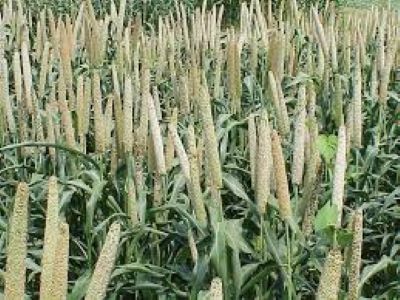Agriculture in drought-prone regions took a major step forward when the Crop Trust and Germany’s federal government provided much-needed support for an international agricultural research institute focused on the drylands of Africa and Asia.
The International Crops Research Institute for the Semi-Arid Tropics (ICRISAT) benefitted from a €500,000-project called Immediate Plant Genetic Resource Protection for Long-Term Sustainability. The project contributed to climate resilience and mitigation, better nutrition, and food security in the drylands by supporting the conservation of the diversity of some of these regions’ most important crops.
The eight-month project was led by the Crop Trust and the Deutsche Gesellschaft für Internationale Zusammenarbeit (GIZ), with support from the German Federal Ministry for Economic Cooperation and Development (BMZ).
International gene banks are an important pillar of the global food system. Yet they are often overlooked. This can lead to gaps in funding, which threatens the long-term conservation and availability of crop diversity, and thus the continued improvement of crops for enhanced food security.
ICRISAT is dedicated to researching and improving resilient, climate-smart and nutritious dryland grain legumes and cereals. These crops are critical for food and nutrition security in large parts of Africa and Asia. ICRISAT hosts one of the world’s largest international genebanks, which holds over 130,000 accessions of 11 dryland crops, including sorghum, seven millets, and three legumes – groundnut (peanut), chickpea and pigeonpea.
These collections are a critical resource underpinning ICRISAT’s research and development efforts. They contain a huge range of crop diversity that can provide essential nutrients, promote sustainable agriculture, and sustain local communities culturally and economically.
The project focused on ICRISAT collections in India and Niger. Several milestones were achieved:
- More than 5,600 accessions of sorghum, pearl millet, chickpea, pigeonpea and groundnut were regenerated and multiplied to restore viability and increase the quantity of seed available for conservation and use. Over 255 accessions of chickpeas that were regenerated were wild species.
- Viability tests were conducted for over 1,200 accessions from the base collection and 6,200 accessions from the active collection.
- A total of 3,440 accessions underwent health testing and were processed into the collections.
The ICRISAT genebank also achieved significant advances in safety duplication. Around 5,950 groundnut and pigeonpea accessions were duplicated at the genebank of the United States Department of Agriculture (USDA), and 1,200 accessions at the Svalbard Global Seed Vault. The Vault, located on the Norwegian island of Spitsbergen in the Arctic, is the world’s ultimate backup facility for crop diversity.
In addition, a demonstration field showcasing millet diversity was planted as part of an outreach program supporting the International Year of Millets in 2023.
The ICRISAT genebank has demonstrated substantial progress in clearing backlogs in its essential operations. This ensures the long-term conservation and availability of a wide range of dryland crop diversity, helping to ensure the continued improvement of these crops and thus food security in large swathes of the driest and most challenging regions of the world.
The project began in November 2023 and ended in July 2024.


